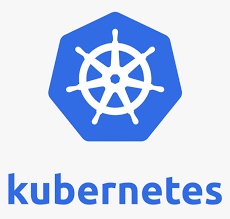Introduction
Kubernetes, an open-source container orchestration platform, has become the de facto choice for managing containerized applications. As organizations continue to adopt Kubernetes, the need for scalability becomes increasingly crucial. In this article, we will delve into best practices for ensuring that your Kubernetes clusters and applications can scale efficiently and effectively.
-
Efficient Use of Resources
One of the fundamental principles of Kubernetes scalability is resource efficiency. Here are some best practices to consider:
-
Horizontal Pod Autoscaling (HPA): Utilize HPA to automatically adjust the number of pod replicas based on CPU or memory utilization. This ensures that you're not over-allocating resources and that your applications can handle varying workloads effectively.
-
Pod Requests and Limits: Set resource requests and limits for pods to prevent resource contention. Requests define the minimum resources a pod should receive, while limits set an upper bound to prevent resource hogging.
-
-
Node Scalability
Ensuring that your cluster nodes can scale seamlessly is essential for accommodating increasing workloads.
-
Cluster Autoscaler: Use cluster autoscaling to automatically adjust the number of nodes in your cluster based on resource demand. This prevents nodes from becoming a bottleneck.
-
Node Pools: Consider using node pools to manage nodes with different configurations and scaling requirements. This allows you to tailor your infrastructure to the specific needs of your workloads.
-
-
Application Design for Scalability
To make the most of Kubernetes, it's essential to design your applications with scalability in mind.
-
Stateless Services: Whenever possible, design your services to be stateless. This allows you to scale them horizontally by adding more pods as needed.
-
Caching Layers: Implement caching layers to reduce the load on backend services and databases. Caches can help handle high traffic efficiently.
-
-
Optimizing Networking
Network performance is critical for scalability. Consider the following best practices:
-
CNI Plugins: Choose a Container Network Interface (CNI) plugin that suits your network requirements. Different CNI plugins may be more suitable for different use cases.
-
Ingress Controllers: Use an Ingress controller for efficient routing of external traffic to your services. This helps balance incoming requests across pods.
-
-
Monitoring and Alerts
To ensure your Kubernetes clusters and applications are scalable, establish robust monitoring and alerting mechanisms.
-
Prometheus and Grafana: Implement the Prometheus monitoring system along with Grafana for visualization. Set up alerts for resource utilization and cluster health.
-
Horizontal Pod Autoscaling Metrics: Define custom metrics for HPA based on your application's specific needs.
-
Conclusion
Kubernetes provides a powerful platform for orchestrating containers and managing complex workloads. However, achieving optimal scalability requires careful planning and adherence to best practices. By efficiently managing resources, designing applications for scalability, optimizing networking, and setting up comprehensive monitoring and alerting, you can ensure that your Kubernetes clusters and applications scale seamlessly to meet the demands of your organization, providing a robust and agile infrastructure for your containerized workloads. Ready to supercharge your career with Kubernetes expertise? Seize the opportunity to earn your Kubernetes Certification. Gain the skills and knowledge needed to excel in container orchestration and cloud-native environments. Take the first step toward a brighter future in DevOps and cloud technology. Enroll now and unlock your potential in the world of Kubernetes!


No comments yet